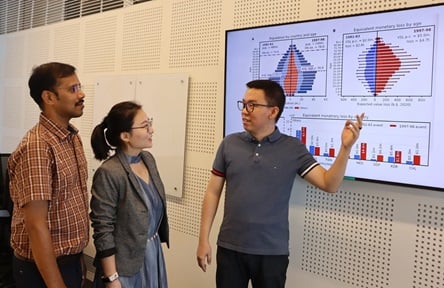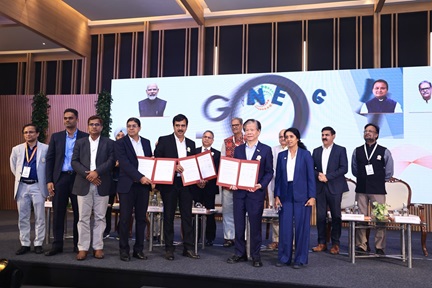Pioneering study on climate change impact on renewable energy

In response to climate change and global warming, NTU scientists are examining the effects of climate variability on renewable energy sources and the nation's electricity supply.
The research, led by Associate Professor Xu Yan, Cluster Director (Multi-Energy Systems & Grids) at the Energy Research Institute @ NTU, leverages data from the third national climate change study (V3) to study how increased temperatures and extreme weather conditions may influence the hydropower, solar, and wind energy across Singapore and neighbouring countries Malaysia, Indonesia, and Vietnam.
Renewable energy technologies, including solar panels and wind turbines, encounter operational difficulties in severe weather scenarios, such as when temperatures exceed 35°C or during typhoon-strength winds.
With Singapore's strategy to diversify its energy portfolio by importing up to 30 per cent of its energy from renewable sources in Southeast Asia by 2035, understanding the potential disruptions caused by climate change to these green energy sources and their demand is essential.
The NTU team aims to create a predictive model by correlating temperature variations, rainfall, and extreme weather occurrences with the production of renewable energy in the region. This model can help in future to determine the most suitable locations for renewable energy farms and the necessary infrastructure, thereby optimising the region's renewable energy potential amidst changing climate conditions and to help enhance Singapore’s energy security.






